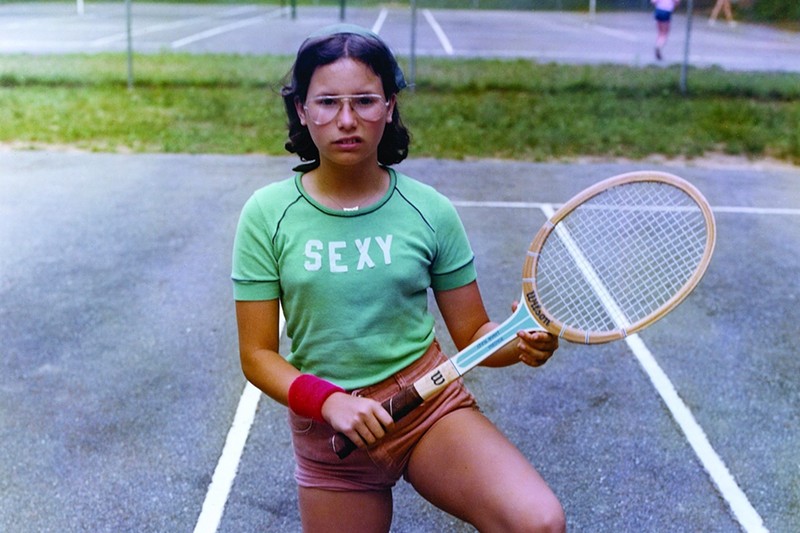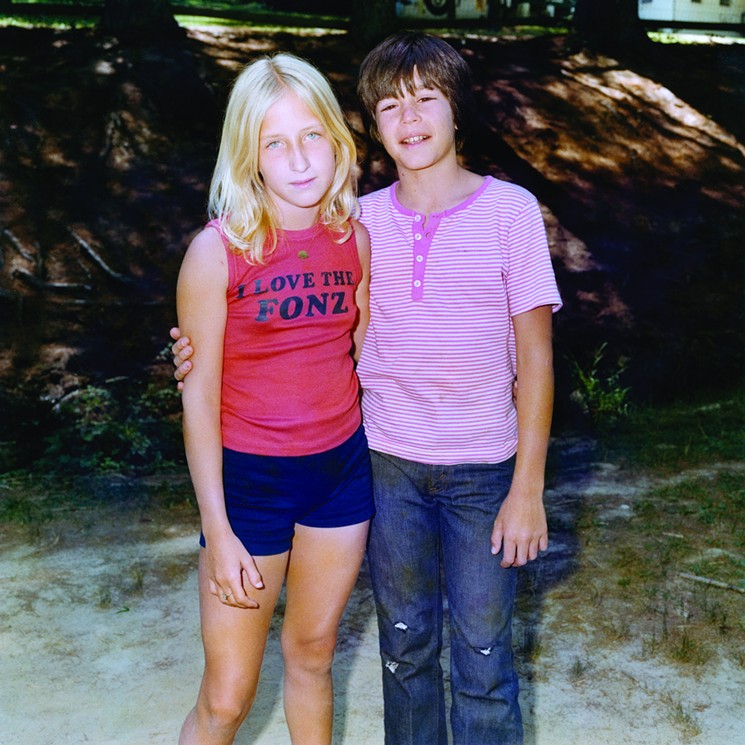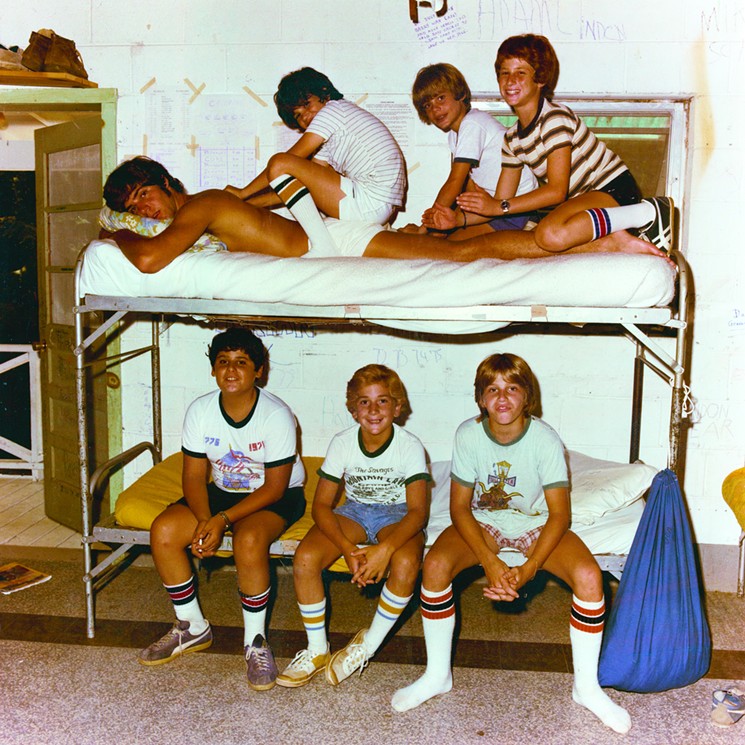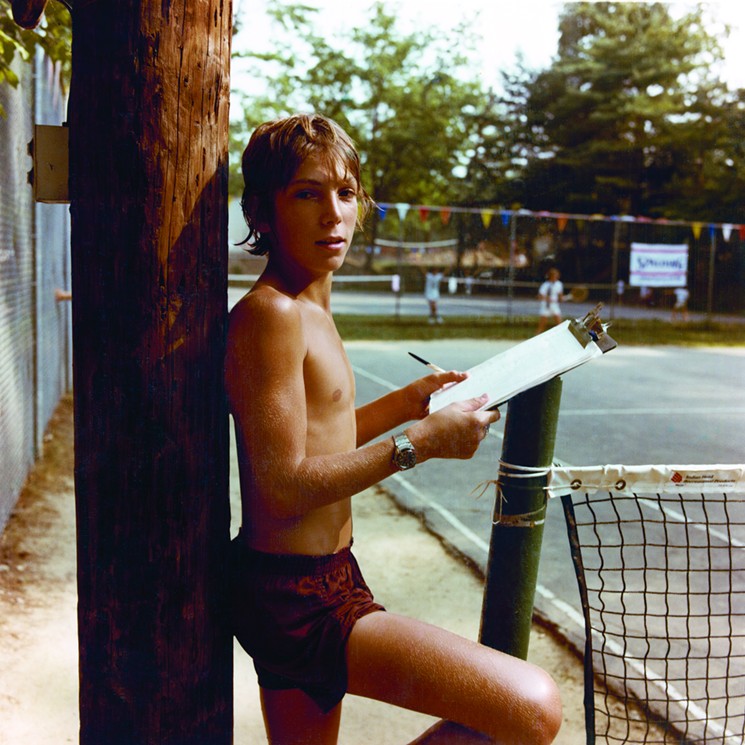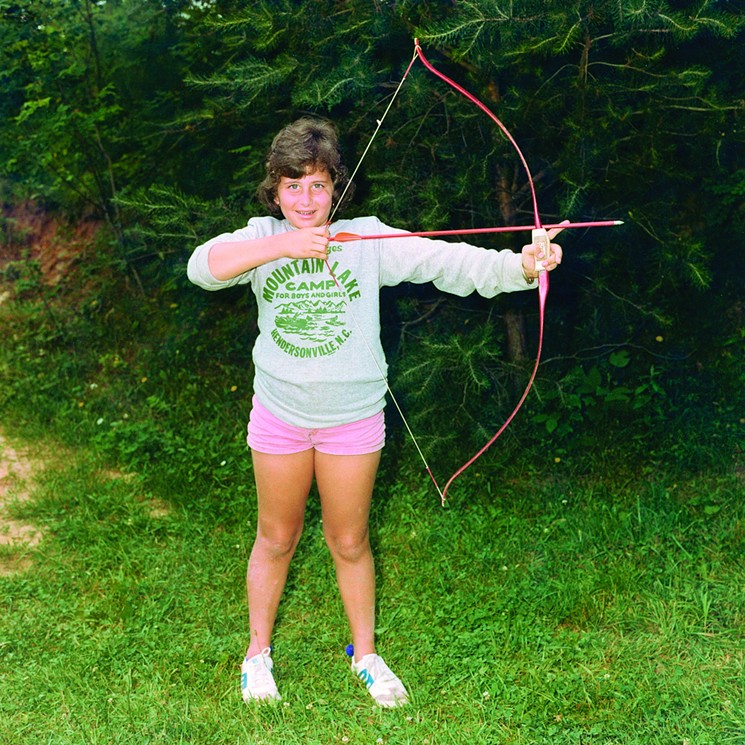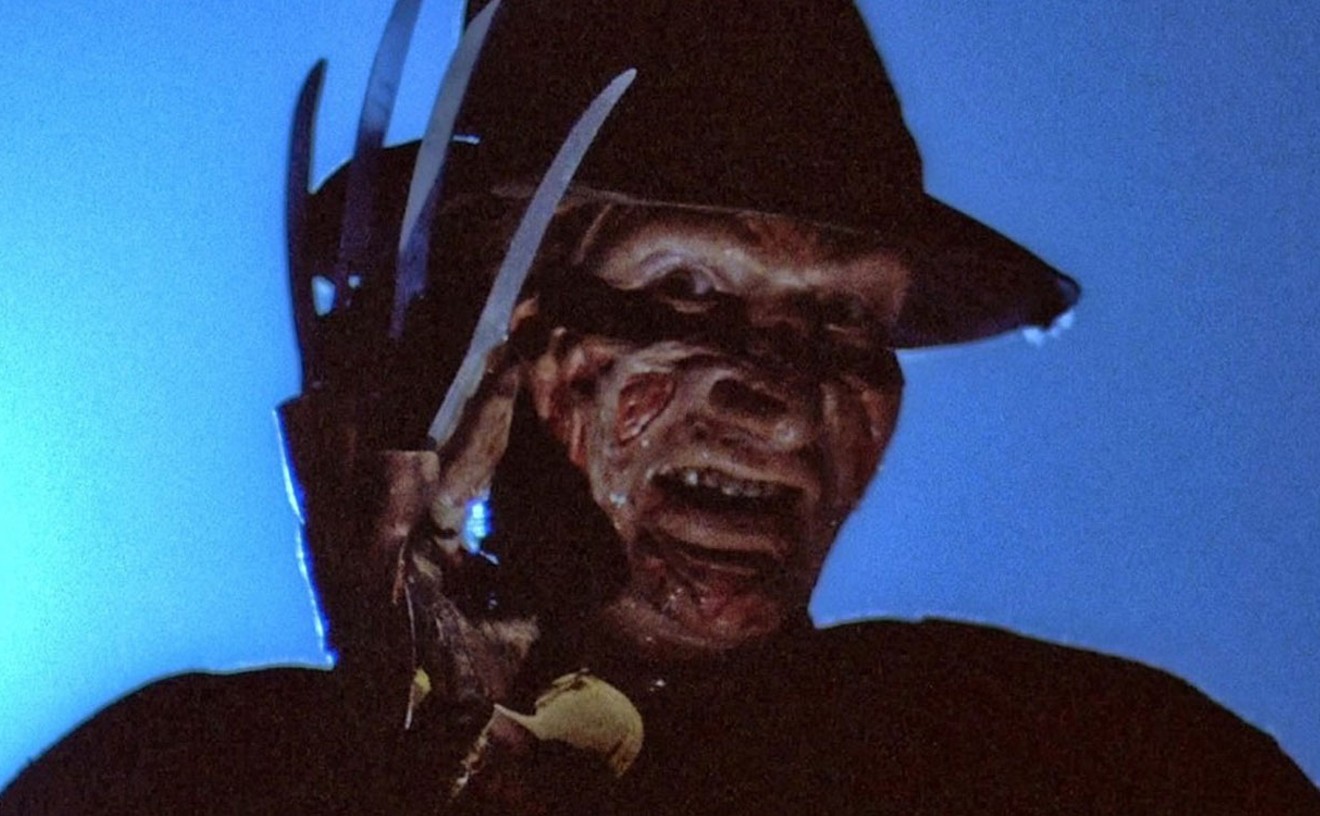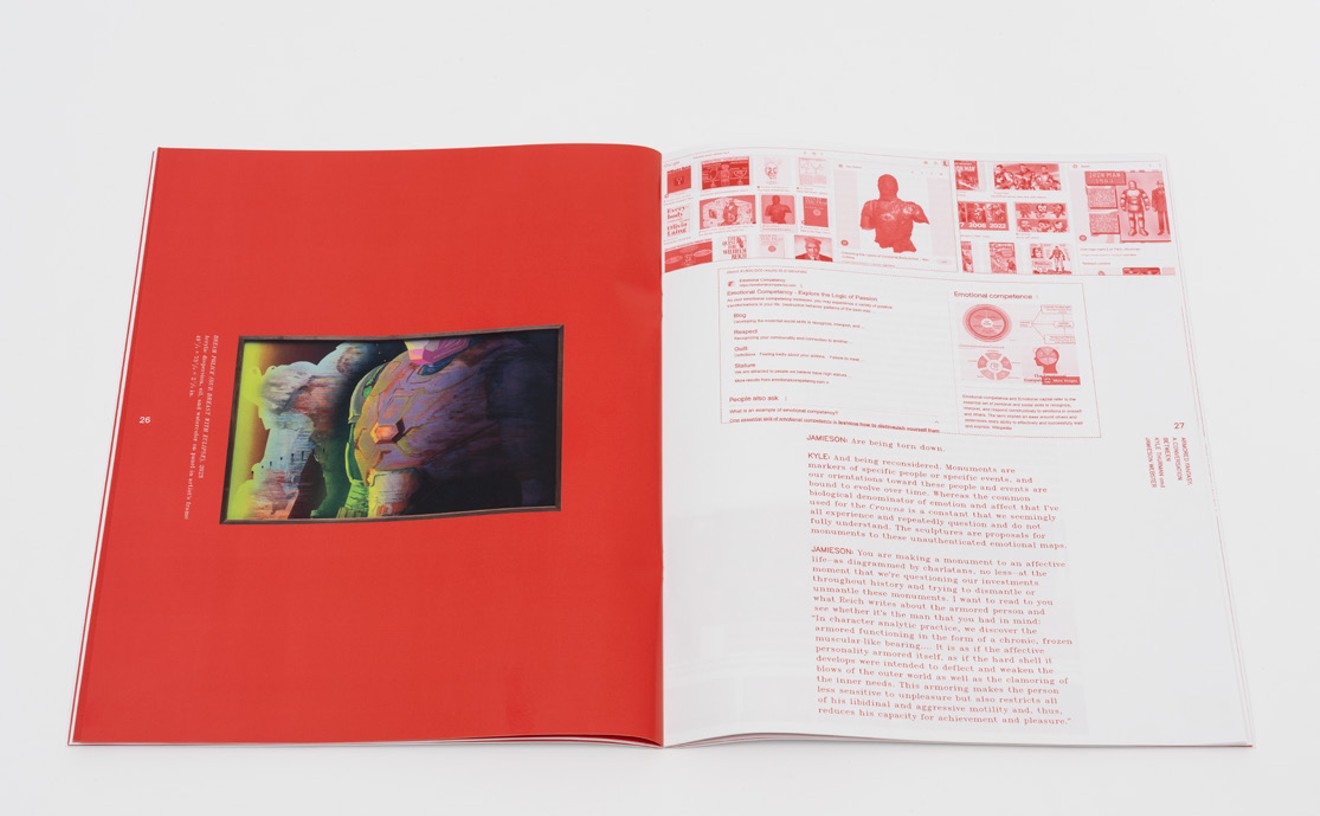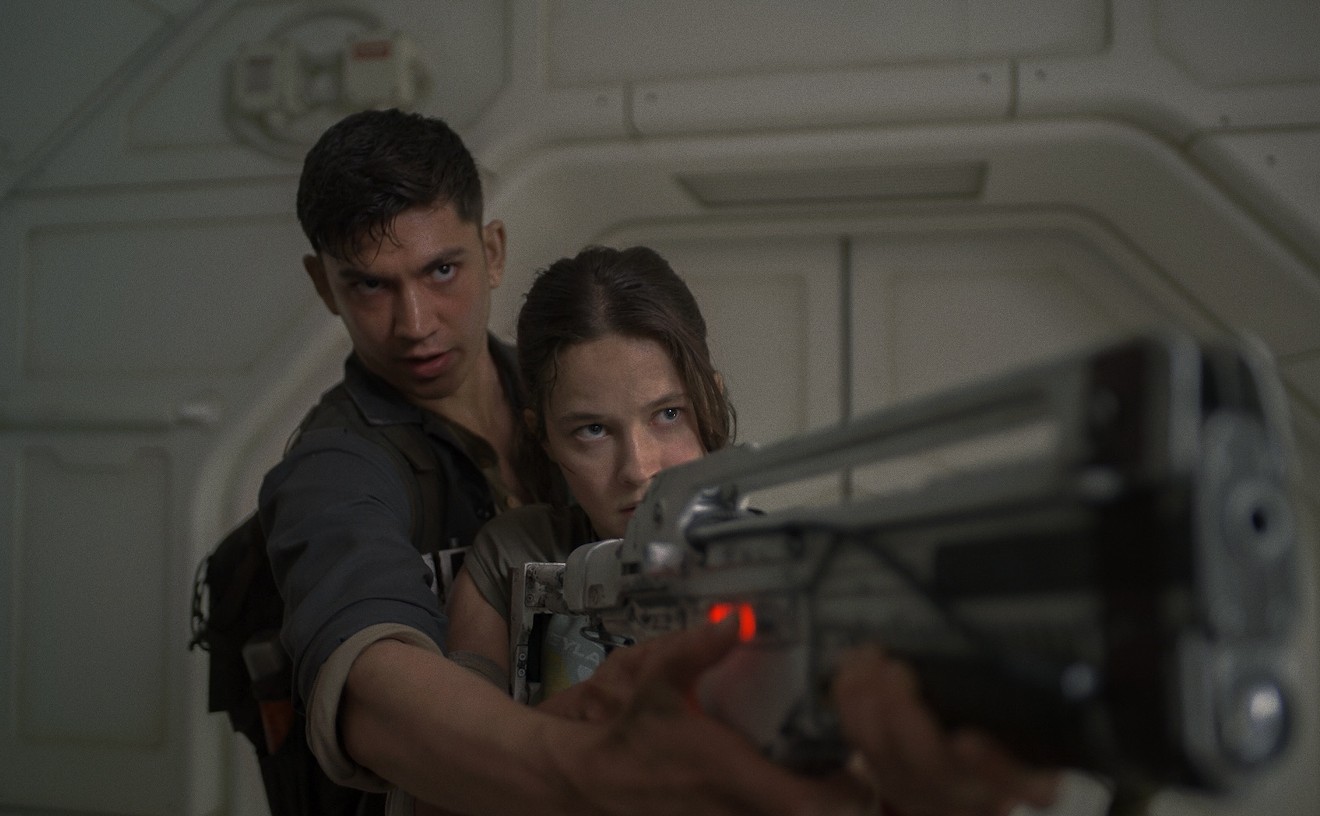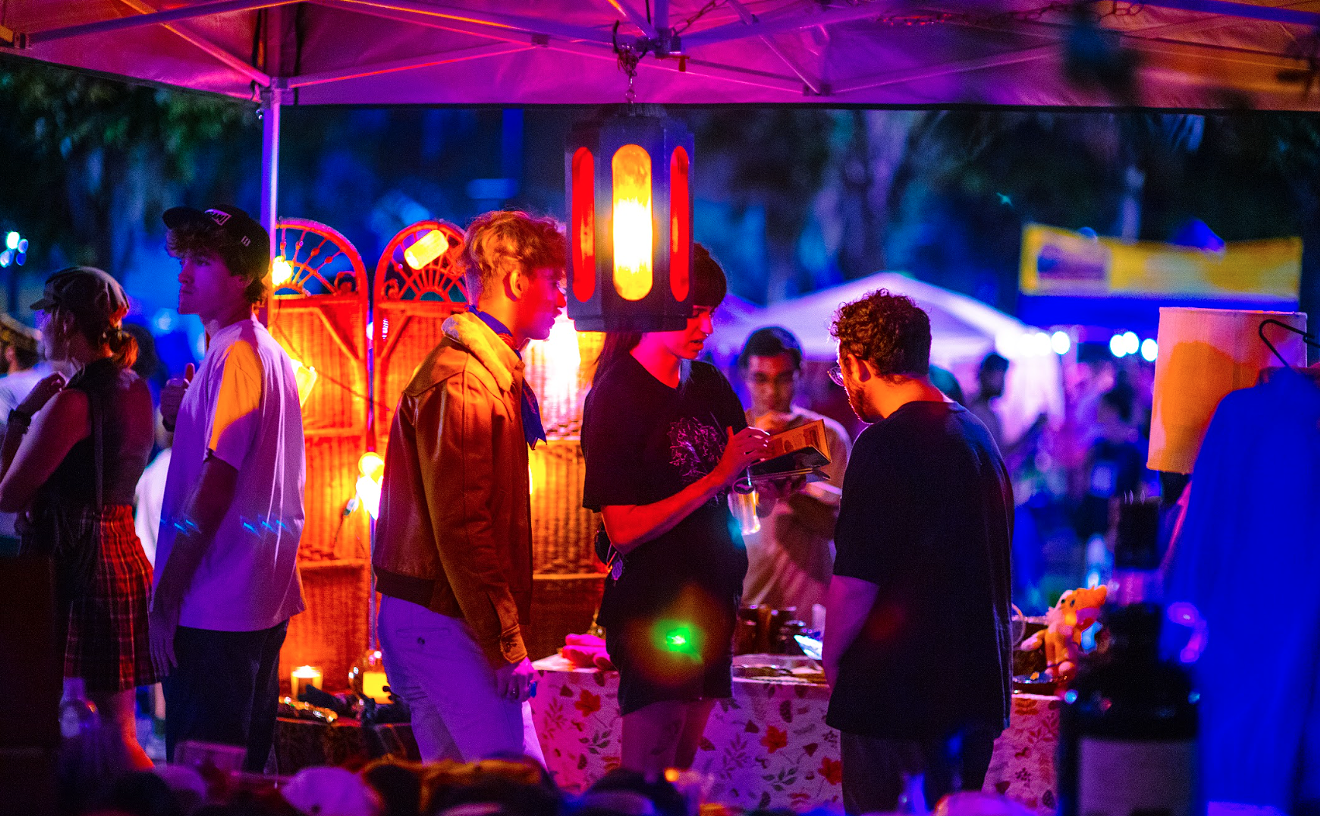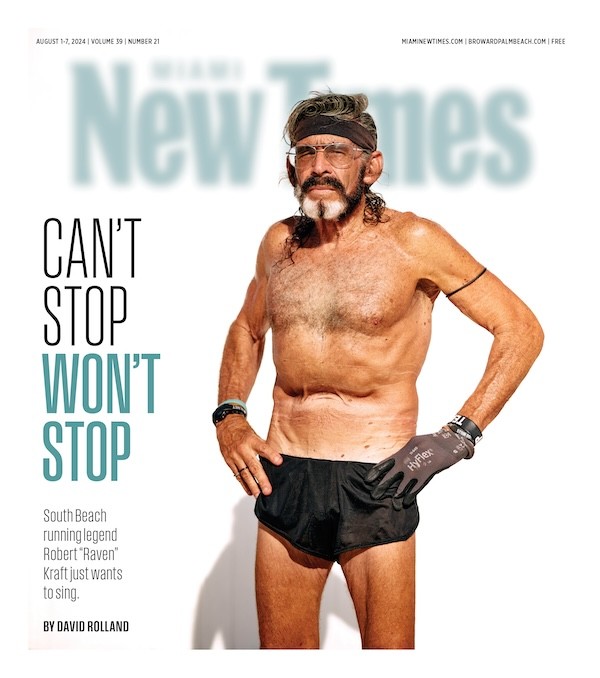In the summer of 1977, Miami Beach-born photographer Andy Sweet was working on his MFA thesis for the University of Colorado, preparing to graduate that December in Boulder. For the site of his project, the 24-year-old chose the bucolic, rustic scene at Camp Mountain Lake in Hendersonville, North Carolina, where Sweet himself had spent summers since 1968, first as a camper, then as a counselor and photography instructor.
The photos Sweet shot that summer are compiled in a new book, Hello Muddah, Hello Faddah: Andy Sweet's Summer Camp 1977, published last month by Letter16 Press.
"You can really see an intimate portrait of summer camp's golden era in these photos," says Brett Sokol, cofounder of Letter16 Press and the book's editor.
The small publishing house is committed to featuring lesser-known photographers and putting in the time and effort to bring their work to a broader audience.
"We are looking to shine a spotlight on amazing Miami photographers who simply have not gotten the attention that they deserve for a number of reasons," says Sokol, who worked at New Times as a staff writer in the early 2000s. "On the one hand, the photographs have to stand on their own aesthetically as beautiful, transcendent works of art. But it's important that they also serve as photojournalism, that they tell us an important story, that they fill in part of the historical picture."
Sweet called himself a documentary photographer and had a distinct vision of what that meant.
"He had self-confidence. He knew exactly what he wanted to do and how he wanted to do it," Sokol says. "He saw himself setting out and documenting communities, but he was very specific about who and what: He only wanted to document worlds that he himself knew intimately."
Sweet had a knack for shining a light on the communities he knew best, and for portraying each of them at a precise, fleeting moment in time.
For the summer-camp photos, that meant capturing his teen and preteen subjects in all their awkward, confused glory, existing in the space between childhood and adulthood. In her introduction to the book, New Yorker staff writer Naomi Fry calls the stage "that transformative moment of youth, where new discoveries — of the world around one, as well as of one's own body and soul — are almost literally written on one's face."
Gawky, gangly youngsters grin or scowl for the camera: a gaggle of boys piled on a bunk bed, three of them sitting directly on top of their counselor; a blond girl posing with a friend, wearing a serious expression and an "I Love the Fonz" T-shirt; a water skier lifting above the lake, looking as though he hasn't quite grown into his long limbs.
"When you look at these photos, you can instantly tell who is comfortable in their own skin and who is not, who has hit that point where they're feeling the confidence of their own body, and which of the kids are just painfully shy," Sokol says. "That's the beauty of the book, I think. The photos are such a joy to look at — they're sweet or funny or bittersweet — but it's also cultural anthropology. That is what Andy was intent on doing, wherever he was, and he set out to capture an intimate portrait of this teenage moment."
Because Sweet was already a fixture at the camp, familiar with its daily routines and people, his subjects were used to him taking photos and he had achieved a comfort level an outsider wouldn't have been able to approach. He used a Hasselblad square-format camera that hung at his chest so he didn't have to hold it up to his eye to shoot.
"You essentially get to make eye contact with the people as you're shooting them, and it creates a much closer connection with your subject," Sokol says.
Sweet had recently switched gears and decided to photograph exclusively in color, despite the demands of the art world at the time, which didn't take color photography seriously. Galleries and museum curators would sometimes refuse to look at an artist's work right off the bat if it wasn't shot in black-and-white.
"Shooting in color in 1977 was almost like starting your career off with a huge strike against you," Sokol says. "Color was seen at that time as something that was for fashion and advertising, period. If you were a serious photographer, you shot in black-and-white."
Sweet, however, had begun to take inspiration from a burgeoning movement of color photographers who were bucking the art establishment, and he looked up to artists like William Eggleston.
"Andy really felt that if you were going to be a documentary photographer, it was important to capture reality, and that meant shooting in color," Sokol says.
After earning his MFA, Sweet returned home to photograph another group he was intimately familiar with: the elderly Jewish community in South Beach. At the time, the area was considered "God's waiting room," but Sweet's photos reveal a far more vibrant picture of a community stepping out and living life to the fullest even in old age.
"It's a portrait that really hadn't been presented previously, and I think that was why even at that time he knew how important it was to document it. He knew it wasn't going to last, that things were changing," Sokol says.
Last year, Letter16 Press released its first collection of Sweet's photographs, Shtetl in the Sun: Andy Sweet's South Beach 1977–1980, which includes many of those photos. The story is also explored in the documentary The Last Resort, which examines the life and work of Sweet and his close friend and collaborator, Gary Monroe. The two friends, both from Miami Beach, had attended the University of Colorado together and planned to work as a team documenting their hometown, albeit in their own very different styles. (Monroe shot in black-and-white, for instance.)
The two were beginning to gain attention for their work, receiving grants from the National Endowment for the Arts and the City of Miami Beach. But their plans were cut short when Sweet was murdered in 1982, at the age of 28. Adding to the tragedy, most of his negatives were lost by the storage company entrusted to care for them after his death. But in 2006 Sweet's brother-in-law, Stan Hughes, visited the storage site and found 30 boxes filled with color test prints. Hughes has been working on restoring the photos ever since and in 2010 founded the Andy Sweet Photo Legacy.
For Hello Muddah, Hello Faddah, Hughes and Francesco Casale, Sokol's cofounder at Letter16 Press, worked tirelessly on restoring the summer camp photos from a small number of prints and contact sheets. (The book's title honors comedian Allan Sherman's iconic summer-camp novelty song of the same name.)
"It was incredibly expensive and time-consuming," Sokol says. "Commercial galleries just didn't want to take that kind of risk in investing huge amounts of money into an older artist, and so that's where we stepped in and said if we don't do it, no one else will. We were really grateful to Andy Sweet's family for having the faith and the trust in us to do that first book and now this second book."
Whether they bring back nostalgic recollections of summer camp days or animate a piece of popular culture seen in countless movies and storybooks, Sweet's photos provide an entry point for a wide variety of viewers to connect with their inner adolescent.
"It's been really gratifying to see the reaction of so many people when they see these photos," Sokol says. "It vindicates our belief in how special his work was."
Hello Muddah, Hello Faddah: Andy Sweet's Summer Camp 1977. $34.95 at Letter16 Press, letter16press.com.

Audio By Carbonatix
[
{
"name": "Air - MediumRectangle - Inline Content - Mobile Display Size",
"component": "19274298",
"insertPoint": "2",
"requiredCountToDisplay": "2",
"watchElement": ".fdn-content-body",
"astAdList": [
{
"adType": "rectangle",
"displayTargets": "mobile"
}
]
},{
"name": "Editor Picks",
"component": "17482312",
"insertPoint": "4",
"requiredCountToDisplay": "1",
"watchElement": ".fdn-content-body",
"astAdList": [
{
"adType": "rectangle",
"displayTargets": "desktop|tablet"
},{
"adType": "rectangle",
"displayTargets": "desktop|tablet|mobile"
}
]
},{
"name": "Inline Links",
"component": "18711090",
"insertPoint": "8th",
"startingPoint": 8,
"requiredCountToDisplay": "7",
"maxInsertions": 25
},{
"name": "Air - MediumRectangle - Combo - Inline Content",
"component": "17482310",
"insertPoint": "8th",
"startingPoint": 8,
"requiredCountToDisplay": "7",
"maxInsertions": 25,
"watchElement": ".fdn-content-body",
"astAdList": [
{
"adType": "rectangle",
"displayTargets": "desktop|tablet"
},{
"adType": "rectangle",
"displayTargets": "desktop|tablet|mobile"
}
]
},{
"name": "Inline Links",
"component": "18711090",
"insertPoint": "8th",
"startingPoint": 12,
"requiredCountToDisplay": "11",
"maxInsertions": 25
},{
"name": "Air - Leaderboard Tower - Combo - Inline Content",
"component": "17482313",
"insertPoint": "8th",
"startingPoint": 12,
"requiredCountToDisplay": "12",
"maxInsertions": 25,
"watchElement": ".fdn-content-body",
"astAdList": [
{
"adType": "leaderboardInlineContent",
"displayTargets": "desktop|tablet"
},{
"adType": "tower",
"displayTargets": "mobile"
}
]
}
]

